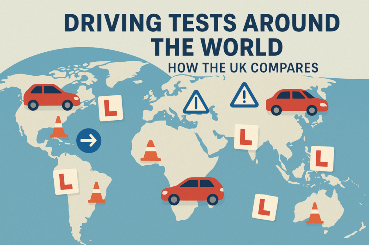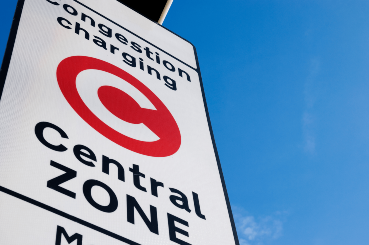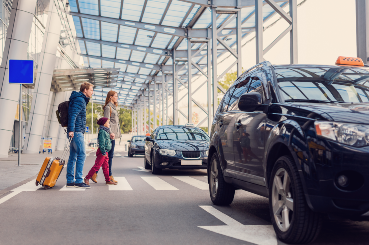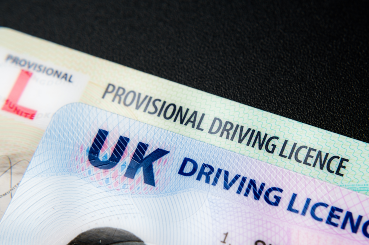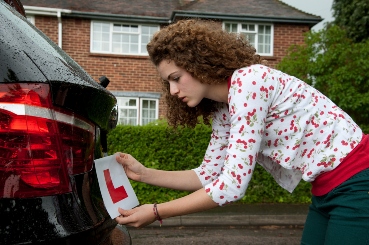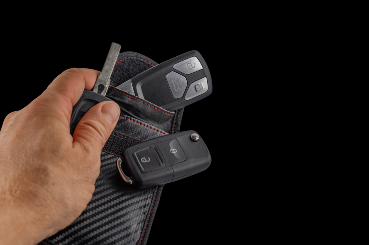Driving safely within the speed limit is not only a legal obligation but also crucial for the safety of everyone on the road. In the UK, speeding regulations are strictly enforced to keep road users safe, and breaches can lead to substantial fines, points on your licence, and in some cases, disqualification.
If you’re unsure of how speed limits work or what happens if you exceed them, read on to learn about UK speed limits, penalties for speeding, and how they apply to different roads and situations.
How Do I Find the Speed Limit of a Road?
Determining the speed limit on UK roads isn’t always straightforward, but it’s essential to know it to avoid unintended offences. Speed limits are usually marked by speed limit signs, which are circular with a red border and a number in the centre indicating the limit.
Repeater signs—smaller speed limit signs placed at intervals—are often used on roads where the limit might be unclear, such as rural areas or where the speed limit changes.
In built-up areas with street lights, the default speed limit is 30 mph, a rule set to protect pedestrians, cyclists, and other road users in densely populated areas. In Wales, this has recently been reduced to 20 mph in many built-up areas, a measure aimed at reducing accidents and improving air quality in town centres. However, keep in mind that there are exceptions, so always check for posted signs.
On roads where no specific speed limit sign is displayed, the national speed limit applies. These are indicated by the national speed limit sign—a white circular sign with a black diagonal stripe across it. The actual speed limit depends on the type of road, but this symbol generally means drivers should adhere to the maximum limit allowed for their vehicle and road type.
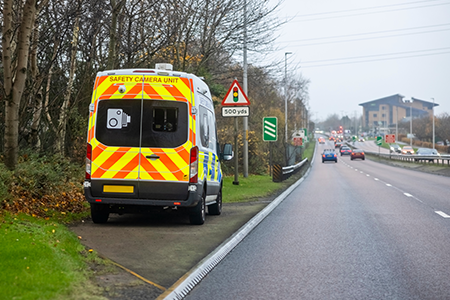
What Is the National Speed Limit?
The UK national speed limit varies depending on the type of road you’re driving on and the vehicle you’re in. For standard cars:
Single Carriageways:
The national speed limit for single-carriageways is 60 mph. These roads typically have one lane in each direction and may have sharp bends or narrower lanes than dual carriageways, making it important to stay alert and follow the posted limit.
Dual Carriageways:
Dual carriageways, which feature a physical separation between lanes going in opposite directions, have a higher national speed limit of 70 mph. This limit allows for smoother traffic flow on roads designed to handle higher volumes at faster speeds.
Motorways:
On motorways, which are designed for high-speed travel and have multiple lanes, the national speed limit is also 70 mph. Due to the nature of motorways, where drivers travel faster and traffic is often dense, maintaining the speed limit and keeping a safe following distance is essential.
When towing a caravan or trailer, different speed limits apply, regardless of the road type. For single carriageways, vehicles towing a caravan must not exceed 50 mph, while on dual carriageways and motorways, the limit is 60 mph. These restrictions are in place to improve stability and control when towing, which is especially important given the additional weight and reduced manoeuvrability of vehicles with trailers.

What’s the Penalty for Speeding?
Speed limit fines in the UK are determined based on several factors, including how much over the speed limit you were driving and your prior driving history. The consequences can vary widely but generally include fines, points on your licence, or even disqualification from driving.
Speed Awareness Courses: In cases of minor speeding penalties, you may be eligible to take a speed awareness course rather than receiving penalty points on your licence. These courses cover the dangers of speeding and provide advice on how to improve your driving habits. Attending a course typically means avoiding penalty points, although you’ll still be required to pay a course fee.
Licence Points: If a speed awareness course is not offered, or if you’re found to be over the speed limit by a larger margin, you may receive 3–6 points on your licence. Accumulating 12 or more points within three years usually leads to a driving ban, so it’s crucial to avoid points where possible. Points stay on your record for a set time, affecting your insurance premiums and potentially leading to other consequences.
Fines: Speeding ticket fines in the UK are set based on your weekly income and can be substantial, particularly for severe offences. Below is a breakdown of the fines and points associated with different speeding offences, classified into three bands:
| Speed Limit mph | <Recorded Speed mph> | ||
| Band C | Band B | Band A | |
| 20 | 41+ | 31-41 | 21-30 |
| 30 | 51+ | 41-50 | 31-40 |
| 40 | 66+ | 56-65 | 41-55 |
| 50 | 76+ | 66-75 | 51-65 |
| 60 | 91+ | 81-90 | 61-80 |
| 70 | 101+ | 91-100 | 71-90 |
| Disqualifications/Points | 7 to 56 days / 6 points | 7 to 28 days / 4 to 6 points | None / 3 points |
New Drivers: For new drivers, the rules are even stricter. If you accumulate six or more points within the first two years of passing your driving test, your licence may be revoked. This means you would need to retake both your theory and practical driving tests to regain your licence—a costly and time-consuming process.
Factors which may increase the seriousness of your conviction
On the other hand, there are multiple scenarios in which you can increase the severity of penalties you face as a result of speeding. These include;
- previous convictions
- speeding on bail
- towing a caravan or trailer
- carrying passengers or a heavy load
- driving for hire or reward
- poor road or weather conditions
- driving an LGV, HGV or PSV
- committed while on licence or post-sentence suspension
- evidence of unacceptable standard of driving over and above the speed limit
- location of the offence, for example near a school
- areas of high traffic or pedestrian activity
- mobile phone usage
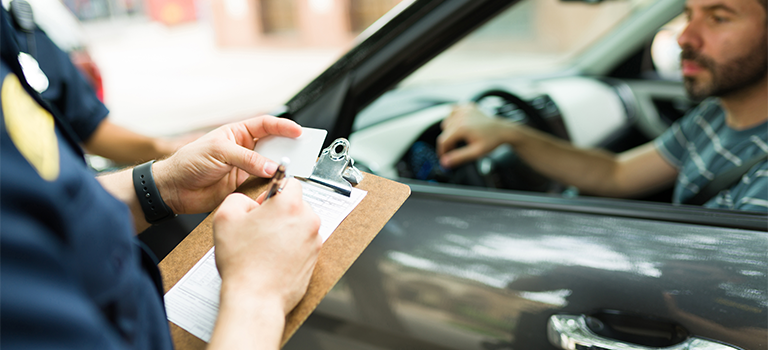
Frequently Asked Questions
How Much Is a Speeding Fine?
Speeding fines in the UK varies according to the speed at which you were driving over the limit and your weekly income.
Fines generally range between 25% to 175% of your weekly income, with a maximum cap of £1,000 on standard roads and £2,500 on motorways.
The exact fine amount depends on the speed band and any aggravating or mitigating circumstances.
How Long Do Speeding Tickets Take to Arrive?
Once a speeding offence is recorded, a Notice of Intended Prosecution (NIP) is usually sent to the registered keeper of the vehicle within 14 days of the offence.
This notice will contain details of the offence and instructions on the next steps. If the NIP does not arrive within this timeframe, it’s possible that the fine could be contested, although this is relatively rare.
How Long Do Penalty Points for Speeding Last?
Points from speeding offences typically remain on your licence for four years, although they only count towards disqualification for the first three years. In cases of serious speeding offences, points can stay on your licence for up to 11 years. Having penalty points can impact your insurance premiums, as insurers consider drivers with points a higher risk.
Understanding these laws and their implications is essential for all drivers. Not only does sticking to the speed limit keep you and other road users safe, but it also protects your driving record and saves you from costly penalties. Drive safely, stay aware of speed limits, and enjoy the road responsibly.




